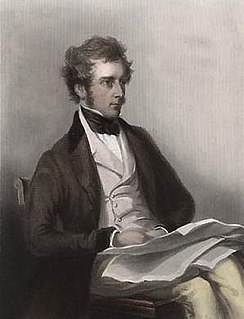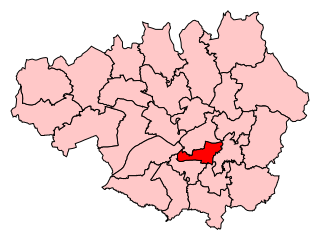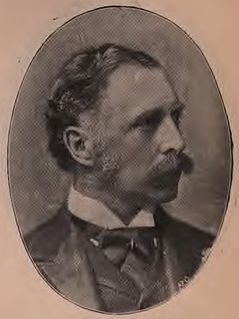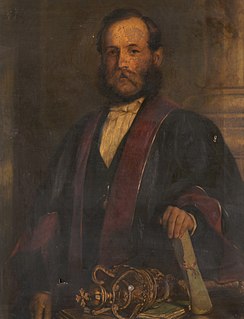Related Research Articles

Charles Pelham Villiers was a British lawyer and politician from the aristocratic Villiers family. He sat in the House of Commons for 63 years, from 1835 to 1898, making him the longest-serving Member of Parliament (MP). He also holds the distinction of the oldest candidate to win a parliamentary seat, at 93. He was a radical and reformer who often collaborated with John Bright and had a noteworthy effect in the leadership of the Anti-Corn Law League, until its repeal in 1846. Lord Palmerston appointed him to the cabinet as president of the Poor-Law Board in 1859. His Public Works Act of 1863 opened job-creating schemes in public health projects. He progressed numerous other reforms, most notably the Metropolitan Poor Law Act of 1867. Florence Nightingale helped him formulate the reform, in particular, ensure professionalisation of nursing as part of the poor law regime, the workhouses of which erected public infirmaries under an Act of the same year. His political importance was overshadowed by his brother, the Earl of Clarendon, and undercut by the hostility of Gladstone.

Blackburn is a constituency in Lancashire, England, which has been represented in the House of Commons of the UK Parliament since 2015 by Kate Hollern of the Labour Party. From 1979 to 2015, it was represented by Jack Straw who served under the Labour leaders of Neil Kinnock and John Smith and the Labour governments of Tony Blair and Gordon Brown.

Manchester Gorton is a constituency represented in the House of Commons of the UK Parliament by Labour's Afzal Khan, who was elected at the 2017 general election. It is the safest Labour seat in Greater Manchester by numerical majority and one of the safest in the country.

Accrington was a parliamentary constituency of the House of Commons of the Parliament of the United Kingdom from 1885 to 1983. It elected one Member of Parliament (MP) by the first-past-the-post system of election.
Oldham was a parliamentary constituency centred on the town of Oldham, England. It returned two Members of Parliament (MPs) to the House of Commons of the Parliament of the United Kingdom. The constituency was created by the Great Reform Act of 1832 and was abolished for the 1950 general election when it was split into the Oldham East and Oldham West constituencies.
Prestwich was a constituency in the county of Lancashire of the House of Commons for the Parliament of the United Kingdom. Created by the Redistribution of Seats Act 1885, it was represented by one Member of Parliament. The constituency was abolished in 1918.
The 1912 Bolton by-election was a parliamentary by-election held for the British House of Commons constituency of Bolton in Lancashire on 23 November 1912. Bolton returned two Member of Parliament to the House of Commons of the United Kingdom, elected by the first past the post voting system.
Robert Leake was a British Liberal politician.

Sir Charles Ernest Swann, 1st Baronet, was a British businessman and Liberal Party politician.
Richard Fort was a Liberal Party politician in England.

Robert Trotter Hermon-Hodge, 1st Baron Wyfold, was a British Conservative politician.
Robert Needham PhilipsDL was an English merchant and manufacturer in the Lancashire textiles business, a Liberal Party politician, and the grandfather of the Whig historian G. M. Trevelyan.
The 1890 Eccles by-election was a parliamentary by-election held for the British House of Commons constituency of Eccles in Lancashire on 22 October 1890.

Nathaniel Eckersley was an English mill-owner, banker and Conservative Party politician from Standish Hall, near Wigan in Lancashire. He sat in the House of Commons for three years in the 1860s, and two years in the 1880s.

Sir Andrew William Barton was a British Liberal politician and businessman.
The Manchester South by-election was a Parliamentary by-election. It returned one Member of Parliament (MP) to the House of Commons of the Parliament of the United Kingdom, elected by the first past the post voting system.
The Manchester North West by-election was a Parliamentary by-election held on 8 August 1912. It returned one Member of Parliament (MP) to the House of Commons of the United Kingdom, elected by the first past the post voting system.

John Sharp Higham was a British Liberal Party politician and cotton manufacturer.
The Manchester North West by-election was a Parliamentary by-election. It returned one Member of Parliament (MP) to the House of Commons of the United Kingdom, elected by the first past the post voting system.

The 1923 Whitechapel and St Georges by-election was a parliamentary by-election for the British House of Commons constituency of Whitechapel and St Georges on 8 February 1923.
References
- 1 2 Mair, Robert Henry (1881). Debrett's Illustrated House of Commons and the Judicial Bench (PDF). London: Dean & Son. p. 96. Retrieved 12 May 2009.
- 1 2 Biographies of Candidates, The Times, 26 November 1885, p.3
- 1 2 Obituary, The Times, 28 January 1890, p.9
- ↑ The Political Situation, 14 May 1886, p.10